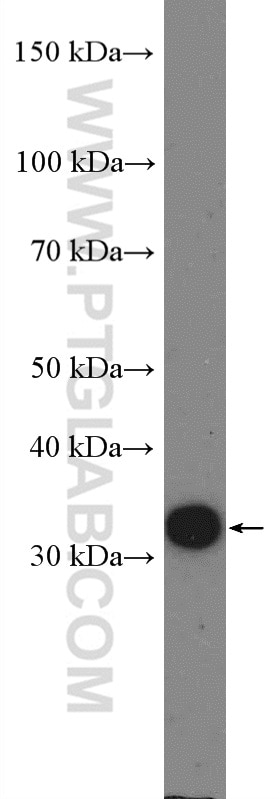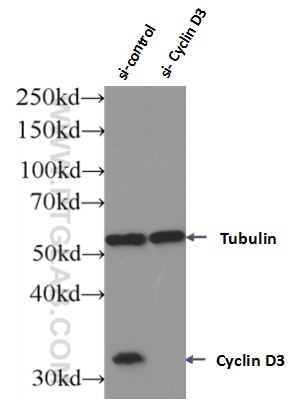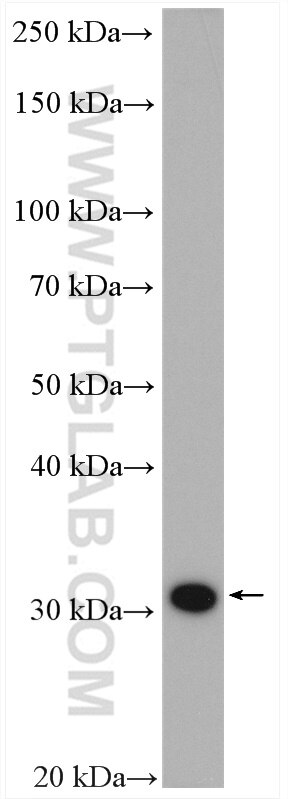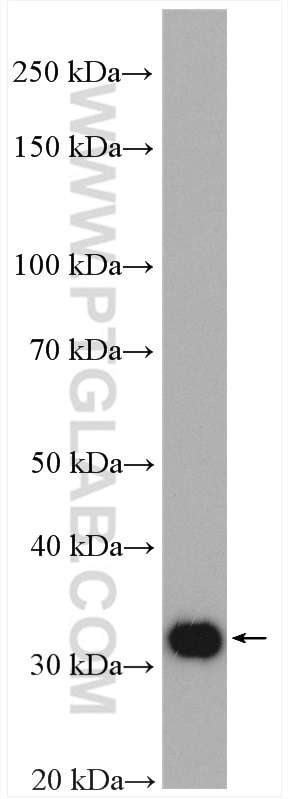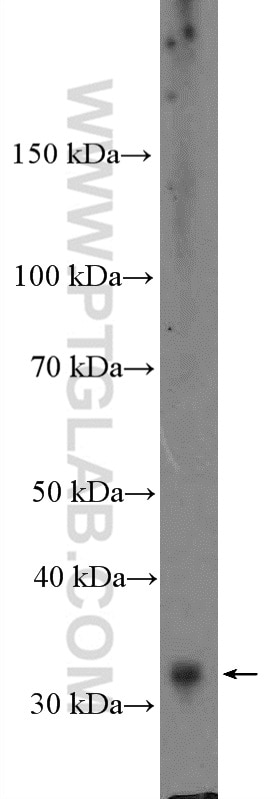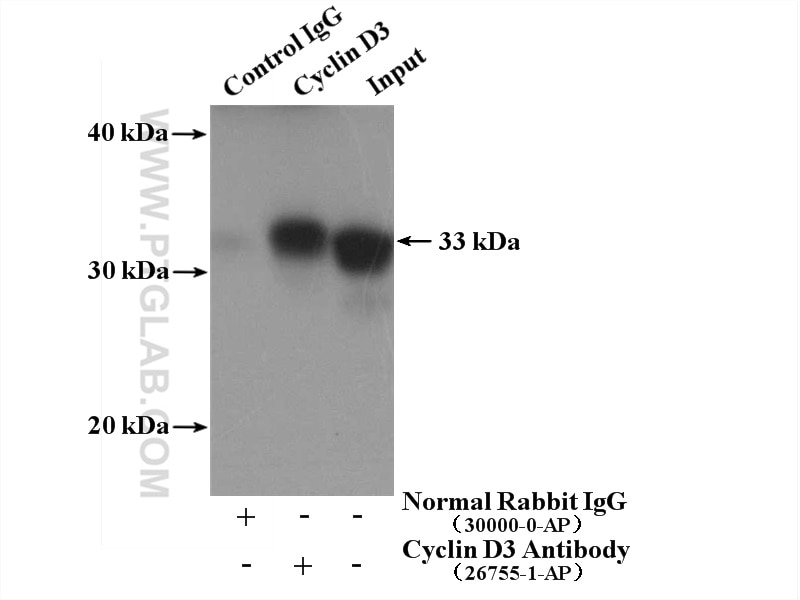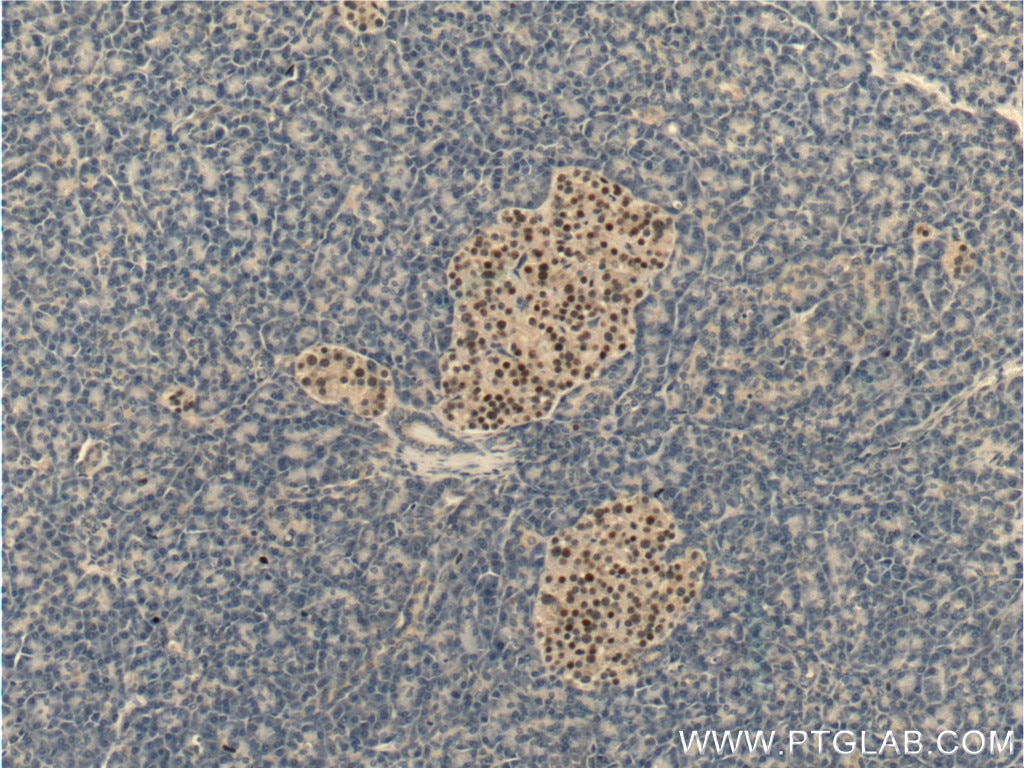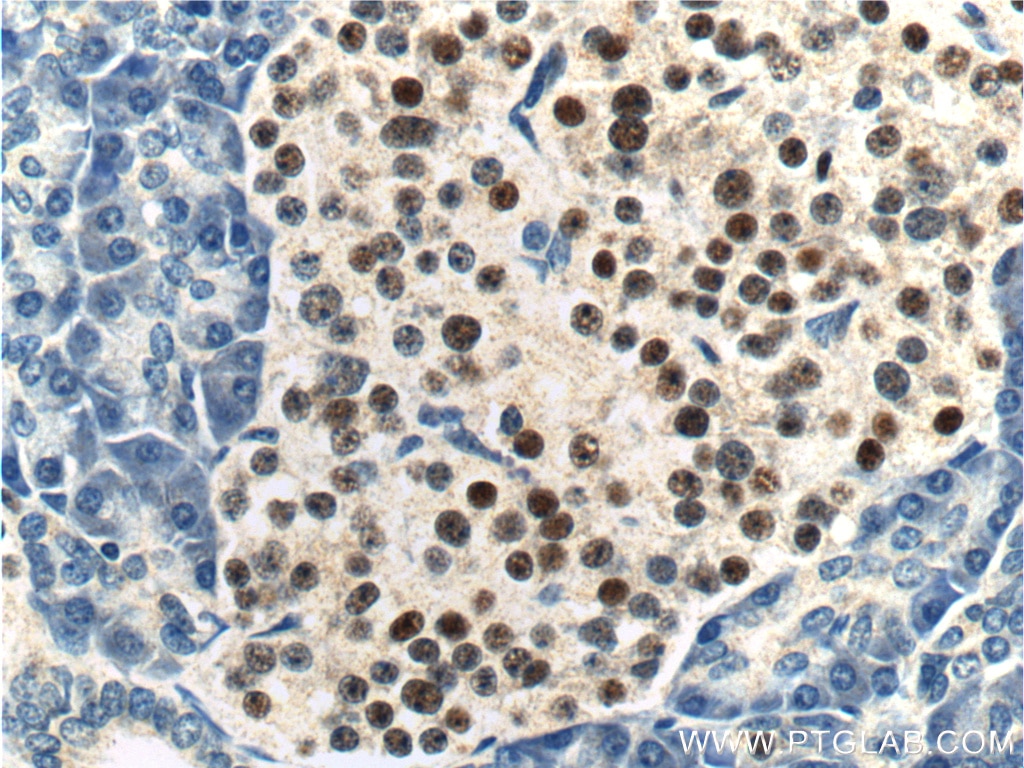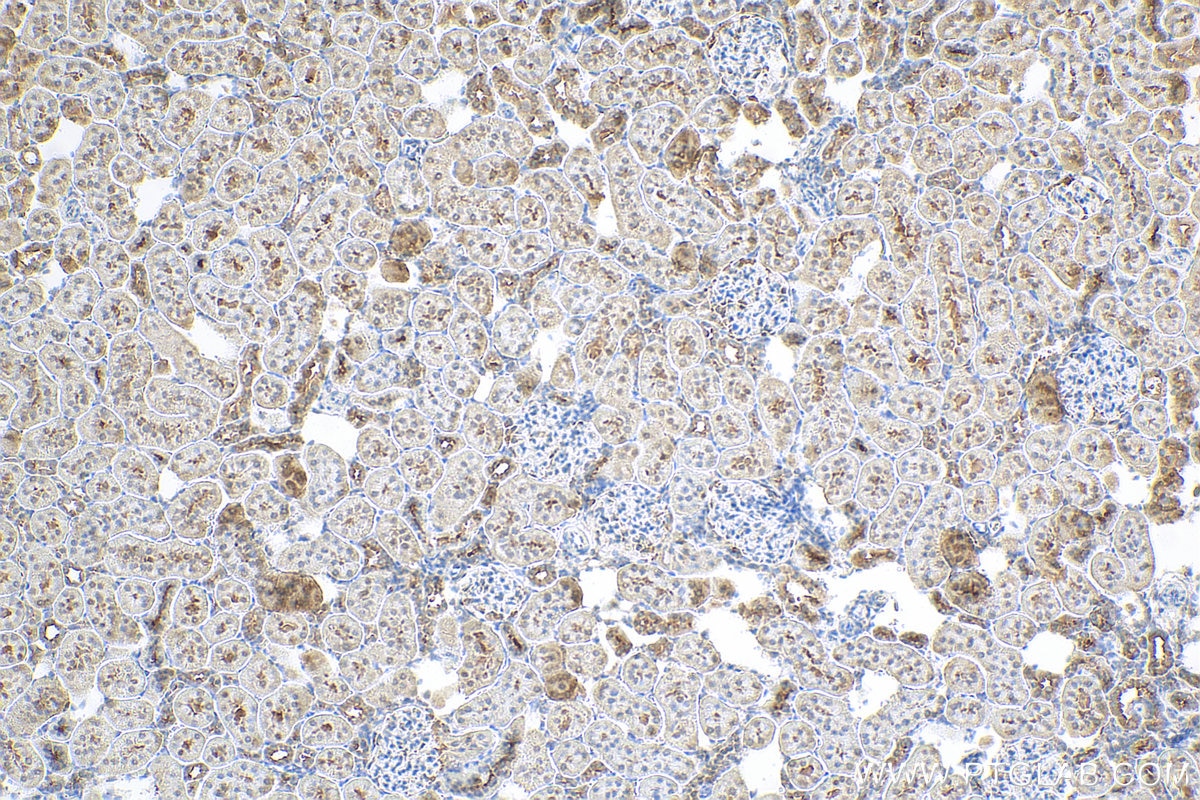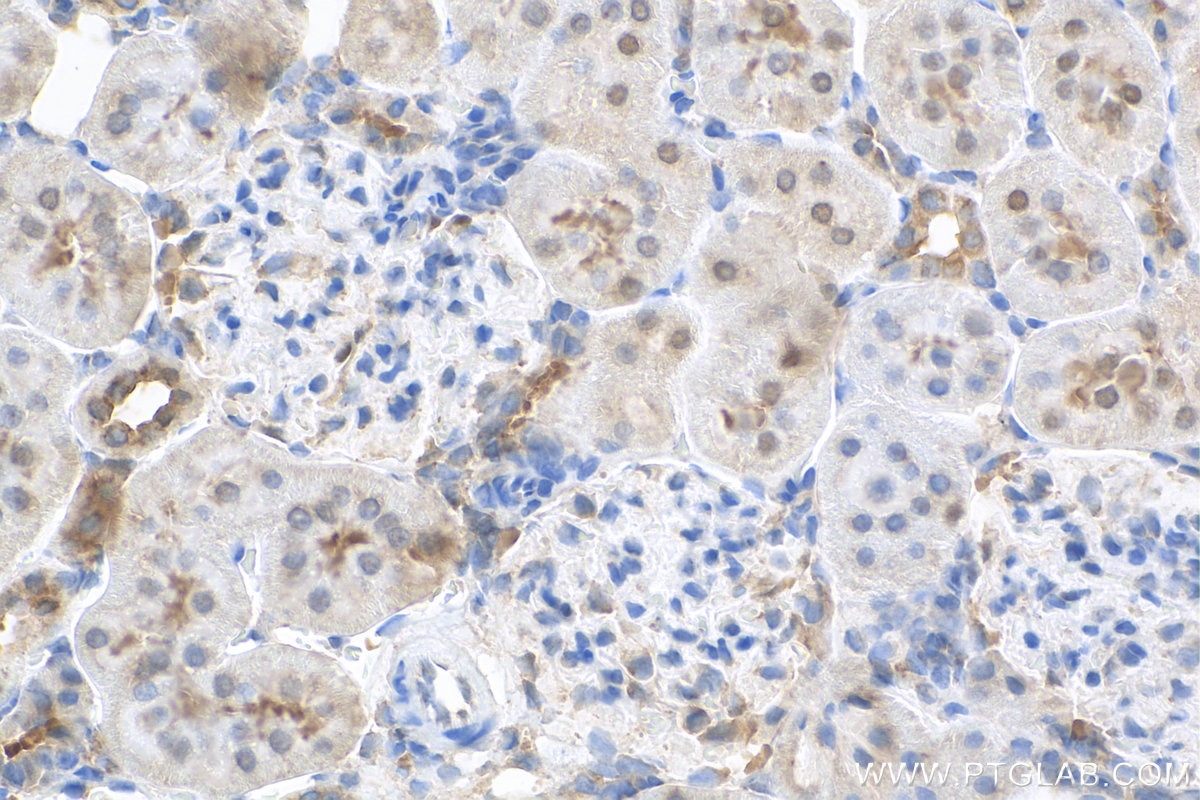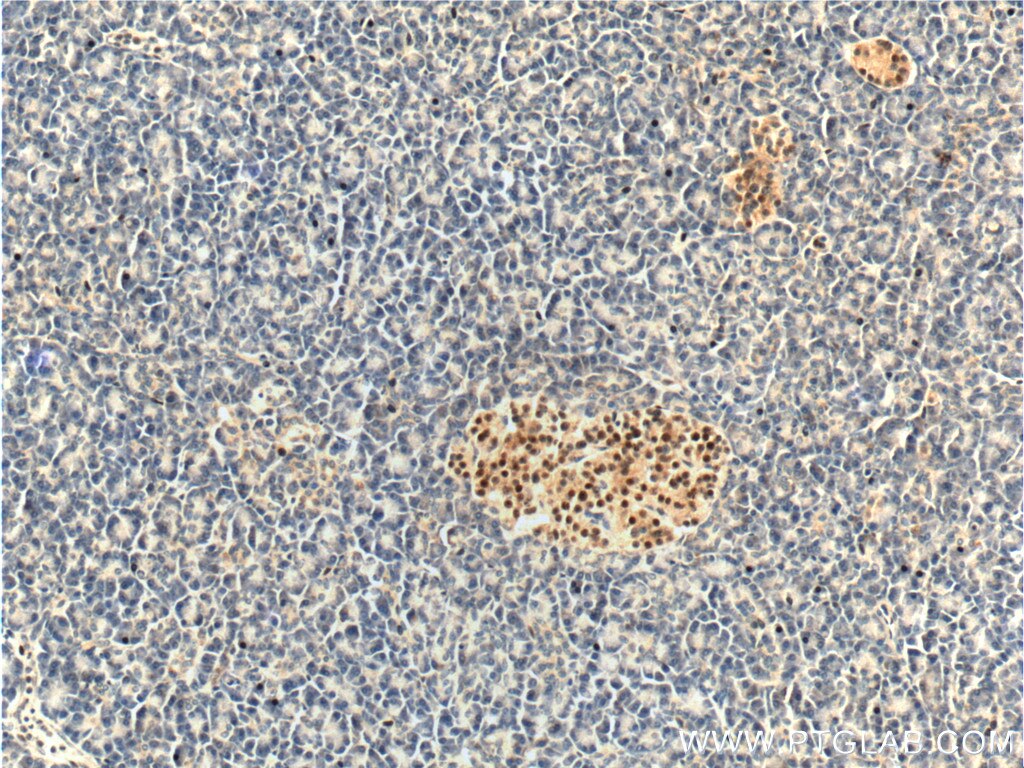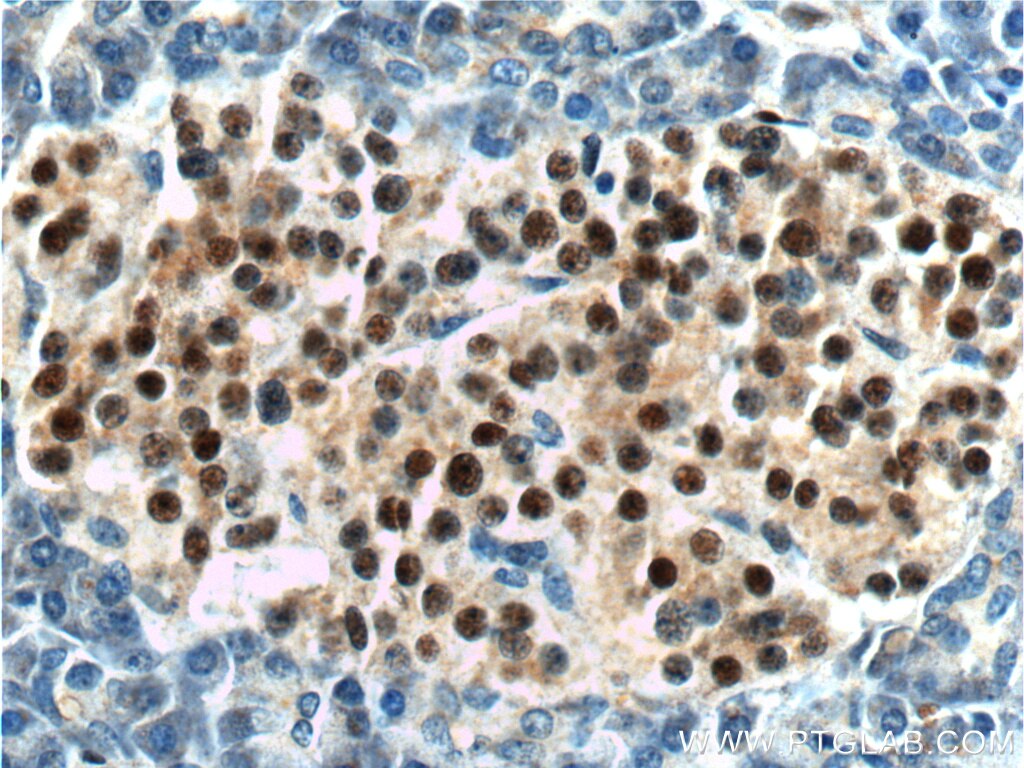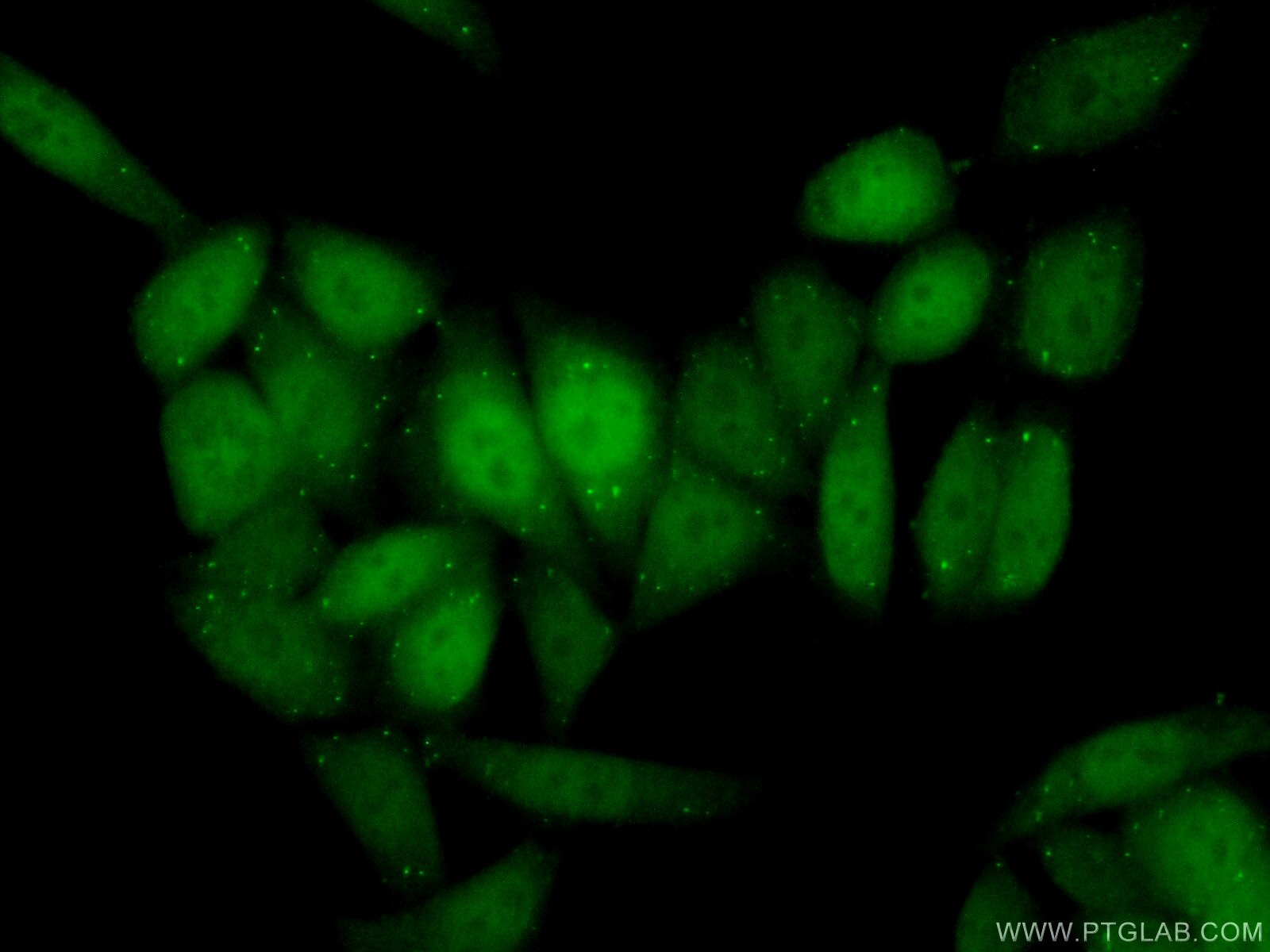- Phare
- Validé par KD/KO
Anticorps Polyclonal de lapin anti-Cyclin D3
Cyclin D3 Polyclonal Antibody for IF, IHC, IP, WB, ELISA
Hôte / Isotype
Lapin / IgG
Réactivité testée
Humain, rat et plus (1)
Applications
WB, IP, IHC, IF, ELISA
Conjugaison
Non conjugué
N° de cat : 26755-1-AP
Synonymes
Galerie de données de validation
Applications testées
| Résultats positifs en WB | cellules C6, cellules HeLa, cellules Jurkat, cellules K-562 |
| Résultats positifs en IP | cellules K-562 |
| Résultats positifs en IHC | tissu pancréatique humain, tissu rénal de rat il est suggéré de démasquer l'antigène avec un tampon de TE buffer pH 9.0; (*) À défaut, 'le démasquage de l'antigène peut être 'effectué avec un tampon citrate pH 6,0. |
| Résultats positifs en IF | cellules HeLa |
Dilution recommandée
| Application | Dilution |
|---|---|
| Western Blot (WB) | WB : 1:500-1:2000 |
| Immunoprécipitation (IP) | IP : 0.5-4.0 ug for 1.0-3.0 mg of total protein lysate |
| Immunohistochimie (IHC) | IHC : 1:50-1:500 |
| Immunofluorescence (IF) | IF : 1:50-1:500 |
| It is recommended that this reagent should be titrated in each testing system to obtain optimal results. | |
| Sample-dependent, check data in validation data gallery | |
Applications publiées
| KD/KO | See 1 publications below |
| WB | See 28 publications below |
| IHC | See 3 publications below |
| IP | See 1 publications below |
Informations sur le produit
26755-1-AP cible Cyclin D3 dans les applications de WB, IP, IHC, IF, ELISA et montre une réactivité avec des échantillons Humain, rat
| Réactivité | Humain, rat |
| Réactivité citée | rat, Humain, souris |
| Hôte / Isotype | Lapin / IgG |
| Clonalité | Polyclonal |
| Type | Anticorps |
| Immunogène | Cyclin D3 Protéine recombinante Ag25151 |
| Nom complet | cyclin D3 |
| Masse moléculaire calculée | 33 kDa |
| Poids moléculaire observé | 33 kDa |
| Numéro d’acquisition GenBank | BC011616 |
| Symbole du gène | CCND3 |
| Identification du gène (NCBI) | 896 |
| Conjugaison | Non conjugué |
| Forme | Liquide |
| Méthode de purification | Purification par affinité contre l'antigène |
| Tampon de stockage | PBS avec azoture de sodium à 0,02 % et glycérol à 50 % pH 7,3 |
| Conditions de stockage | Stocker à -20°C. Stable pendant un an après l'expédition. L'aliquotage n'est pas nécessaire pour le stockage à -20oC Les 20ul contiennent 0,1% de BSA. |
Informations générales
Cyclin D3 belongs to the highly conserved cyclin family, whose members are characterized by a dramatic periodicity in protein abundance through the cell cycle. Cyclins function as regulators of CDK kinases. Different cyclins exhibit distinct expression and degradation patterns which contribute to the temporal coordination of each mitotic event. This cyclin forms a complex with and functions as a regulatory subunit of CDK4 or CDK6, whose activtiy is required for cell cycle G1/S transition. This protein has been shown to interact with and be involved in the phosphorylation of tumor suppressor protein Rb. The CDK4 activity associated with this cyclin was reported to be necessary for cell cycle progression through G2 phase into mitosis after UV radiation.
Protocole
| Product Specific Protocols | |
|---|---|
| WB protocol for Cyclin D3 antibody 26755-1-AP | Download protocol |
| IHC protocol for Cyclin D3 antibody 26755-1-AP | Download protocol |
| IF protocol for Cyclin D3 antibody 26755-1-AP | Download protocol |
| IP protocol for Cyclin D3 antibody 26755-1-AP | Download protocol |
| Standard Protocols | |
|---|---|
| Click here to view our Standard Protocols |
Publications
| Species | Application | Title |
|---|---|---|
Acta Pharmacol Sin Inhibition of USP10 induces myeloma cell apoptosis by promoting cyclin D3 degradation
| ||
J Proteome Res Identification of a Proteomic Signature of Senescence in Primary Human Mammary Epithelial Cells | ||
Transl Lung Cancer Res Deubiquitinase USP5 promotes non-small cell lung cancer cell proliferation by stabilizing cyclin D1. | ||
Cancer Gene Ther Targeting LRIG2 overcomes resistance to EGFR inhibitor in glioblastoma by modulating GAS6/AXL/SRC signaling. | ||
J Cell Mol Med Cell cycle exit during bortezomib-induced osteogenic differentiation of mesenchymal stem cells was mediated by Xbp1s-upregulated p21Cip1 and p27Kip1. | ||
Mol Ther Oncolytics S119N Mutation of the E3 Ubiquitin Ligase SPOP Suppresses SLC7A1 Degradation to Regulate Hepatoblastoma Progression. |
